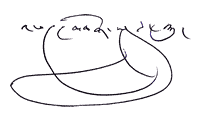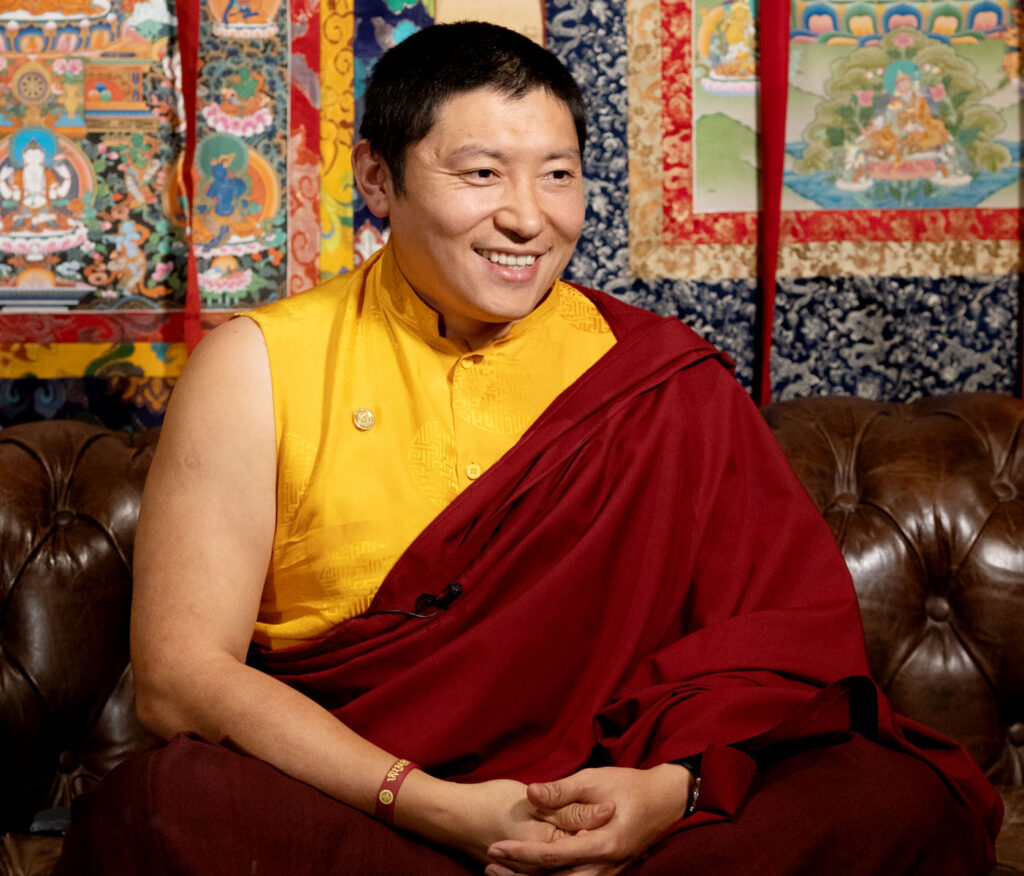Dear friends near and far
This month’s Guru Rinpoche Day falls on the Western calendar’s New Year’s Eve, so happy New Year to you all. I pray that all of your wishes and endeavours in this coming year are fulfilled!
As we all know, dharma practice is very important, and in particular, to practice the dharma on a daily basis. Concerning practice, there is a teaching known as ‘the three excellences’. This is a most precious teaching and something we need to apply not only to all of our dharma practice but to everything that we do.
These three excellences are:
- The motivation of bodhicitta
- The main part free of reference
- Dedicating virtue to enlightenment
1. The motivation of bodhicitta
The motivation of bodhicitta is to wish that all sentient beings be freed from all suffering and the cause of suffering and attain the state of complete, perfect enlightenment.
Our motivation should encompass all sentient beings. We should develop the wish to be of benefit to everyone, not just to ourselves or to a few. This broad, open-hearted motivation is something we need to train ourselves in and cultivate. Without this motivation, our practice will not be genuine dharma practice and any virtue we accumulate will not become a cause for liberation, liberation here meaning freedom from selfish interests, freedom from samsara. The cause or seed for this genuine liberation is bodhicitta, the mind of enlightenment.
When we wish for enlightenment, we are referring to freedom from self-clinging and dualistic notions of self and other and freedom from the negative emotions that torment everyone in this world. This state is what we mean by enlightenment and it is a state that brings genuine benefit to oneself and all others. This was about the first excellence, the motivation of bodhicitta. As practitioners and people on the path of virtue, we should keep this constantly in mind.
2. The main part free of reference
The second excellence, the main part free of reference, or concepts, is to understand that everything is illusory, dream-like, and transient. We are all undergoing constant change. Whatever it may be – our physical body, the environment, emotions, sensations – everything is changing moment by moment and lacks any true, substantial nature.
This being so, whatever virtue (meaning positive, beneficial actions) we perform, keep in mind that they lack true existence, are transient, in a process of constant flux, and therefore are impermanent and empty. Viewing things this way is the main part free of reference. When you apply this second excellence to a virtuous action, that virtue becomes ultimate virtue since it accords with the ultimate state of things, the natural state of all things. For the primary root of suffering is our perception and fixation on things as being real. Being from this mistaken perception is the main part free of reference. This is an extremely precious instruction.
Many of you know how to meditate, and many of you don’t. In either case, my wish and hope for all of you is that you can understand and keep in mind that everything we know and experience is like a dream, impermanent, illusory, empty of true existence. If you practice like this, you will see for yourself how powerful and helpful this understanding can be.
3. Dedicating virtue to enlightenment
Third comes dedication. Whatever you do, dedication is very powerful. Dedication is directed by our motivation and our motivation needs to be powered by some kind of aspiration. I find that aspirations can help our motivation develop and become stronger and purer.
The best way to dedicate is to follow in the tried and trusted footsteps of the buddhas and noble ones of the past. Think, “Just as the past enlightened ones and excellent practitioners, both male and female, dedicated virtue, likewise I dedicate this and all other virtue in the same way and with the same motivation – to benefit all sentient beings.”
When you apply these three excellences, whatever virtue you perform, the result will be the ultimate result, your path of virtue will be able to overcome negative emotions and benefit many beings, and the power of your virtue will continue to increase over time. So whatever practice you do, whatever work you do, please apply these three as much as you can. For example, if you notice you made a mistake and then make a confession, you should do so with these three excellences. When doing your job or any work, you should apply these three. If someone is causing problems for you and you’re having a hard time, you can apply these three: you can think “By suffering like this now, may all other sentient beings be free from suffering and its cause and attain enlightenment (the motivation of bodhicitta). All the suffering I am experiencing right now is illusory, impermanent, and has no real nature, just like a dream (the main part).” And then you can dedicate all roots of virtue to the benefit of all sentient beings (the dedication). Likewise when you are happy and having a great time, you can train in the three excellences, and when suffering or neutral too. When enjoying a delicious meal, or with anything you experience through your five senses – sight, hearing, smell, taste, and touch – whether pleasant, unpleasant, or neutral you can apply these three excellences. They are a very precious and important instruction for people like us who are setting out on the path of virtue. So please, keep these in mind.
These three excellences are something we need to intentionally train in and develop within ourselves. Mundane life in itself is futile and meaningless, but at the same time the different jobs and things we do are not without potential benefit; if used well they can definitely bring about benefit. And since the source of all benefit, and likewise flaws, is the mind then if you can take the three excellences to heart they will guide all of your actions from beginning through to the end so that we become genuinely kind and caring people.
With many warm greetings and constant prayers.
Sarva Mangalam,

Phakchok Rinpoche






Responses